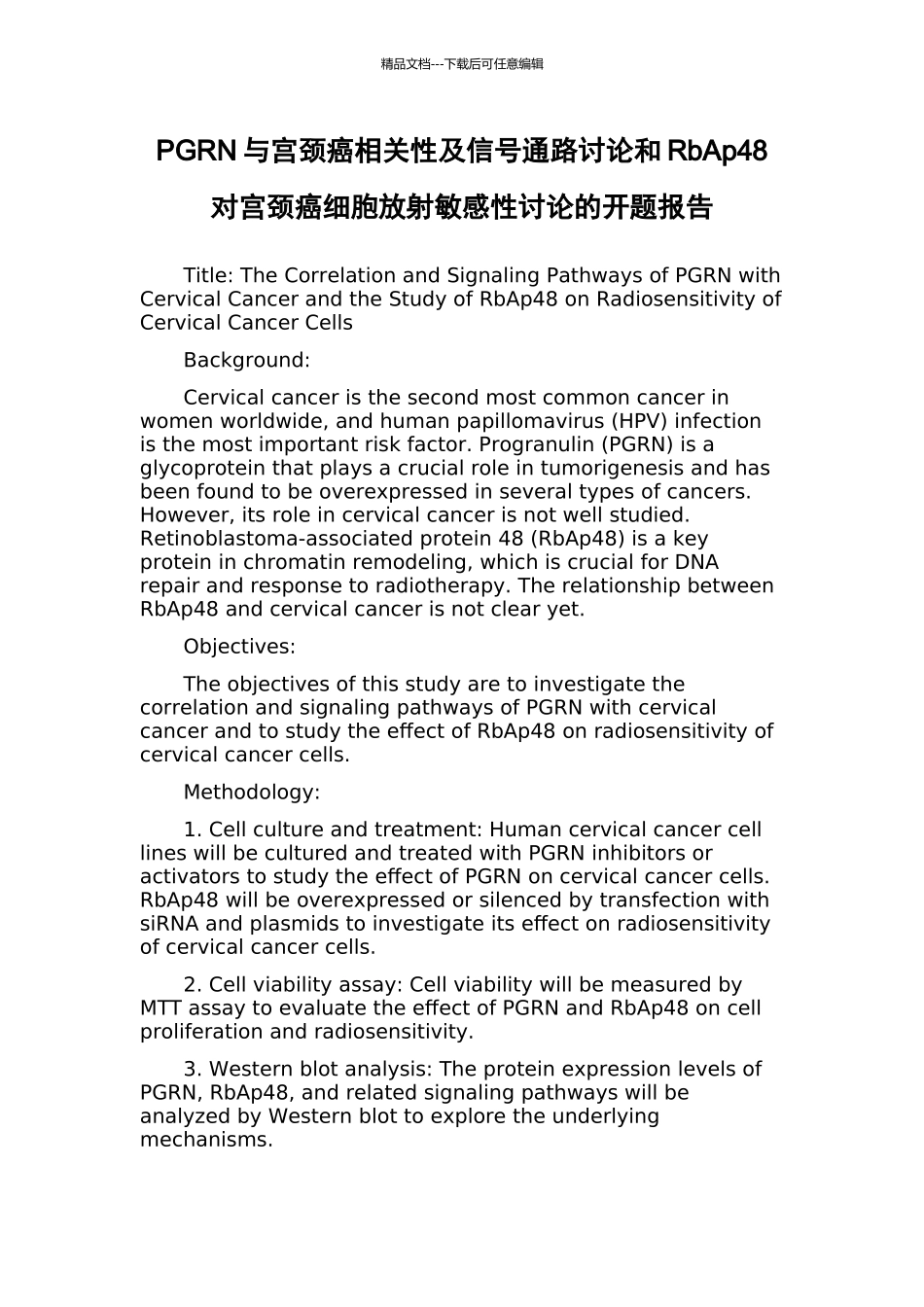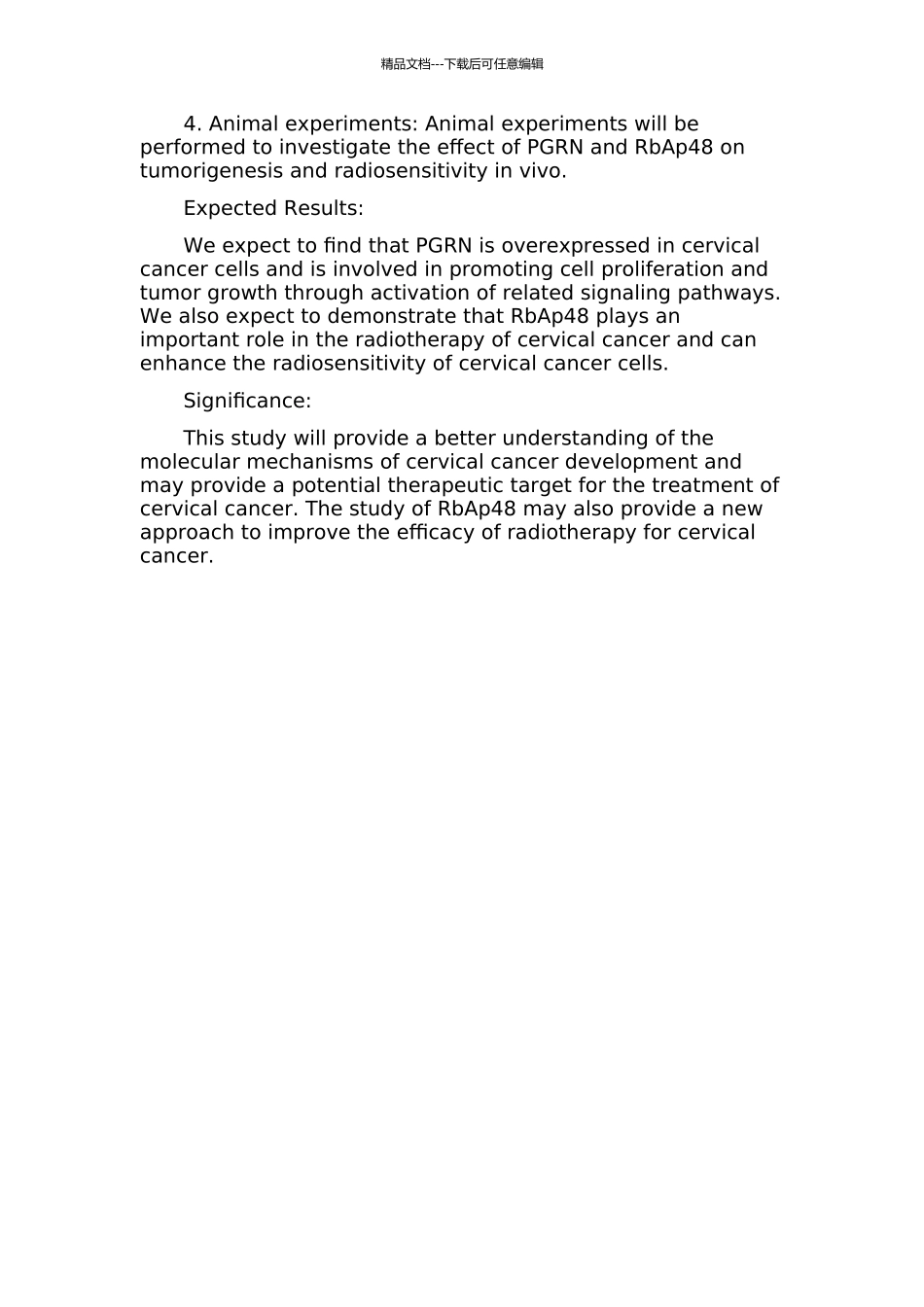精品文档---下载后可任意编辑PGRN 与宫颈癌相关性及信号通路讨论和 RbAp48对宫颈癌细胞放射敏感性讨论的开题报告Title: The Correlation and Signaling Pathways of PGRN with Cervical Cancer and the Study of RbAp48 on Radiosensitivity of Cervical Cancer CellsBackground:Cervical cancer is the second most common cancer in women worldwide, and human papillomavirus (HPV) infection is the most important risk factor. Progranulin (PGRN) is a glycoprotein that plays a crucial role in tumorigenesis and has been found to be overexpressed in several types of cancers. However, its role in cervical cancer is not well studied. Retinoblastoma-associated protein 48 (RbAp48) is a key protein in chromatin remodeling, which is crucial for DNA repair and response to radiotherapy. The relationship between RbAp48 and cervical cancer is not clear yet.Objectives:The objectives of this study are to investigate the correlation and signaling pathways of PGRN with cervical cancer and to study the effect of RbAp48 on radiosensitivity of cervical cancer cells.Methodology:1. Cell culture and treatment: Human cervical cancer cell lines will be cultured and treated with PGRN inhibitors or activators to study the effect of PGRN on cervical cancer cells. RbAp48 will be overexpressed or silenced by transfection with siRNA and plasmids to investigate its effect on radiosensitivity of cervical cancer cells.2. Cell viability assay: Cell viability will be measured by MTT assay to evaluate the effect of PGRN and RbAp48 on cell proliferation and radiosensitivity.3. Western blot analysis: The protein expression levels of PGRN, RbAp48, and related signaling pathways will be analyzed by Western blot to explore the underlying mechanisms.精品文档---下载后可任意编辑4. Animal experiments: Animal experiments will be performed to investigate the effect of PGRN and RbAp48 on tumorigenesis and radiosensitivity in vivo.Expected Results:We expect to find that PGRN is overexpressed in cervical cancer cells and is involved in promoting cell proliferation and tumor growth through activation of related signaling pathways. We also expect to demonstrate that RbAp48 plays an important role in the radiotherapy of cervical cancer and can enhance the radiosensitivity of cervical cancer cells.Significance:This study will provide a better understanding of the molecular mechanisms of cervical cancer development and may provide a potential therapeutic target for the treatment of cervical cancer. The study of RbAp48 may also provide a new approach to improve the efficacy of radiotherapy for cervical cancer.

